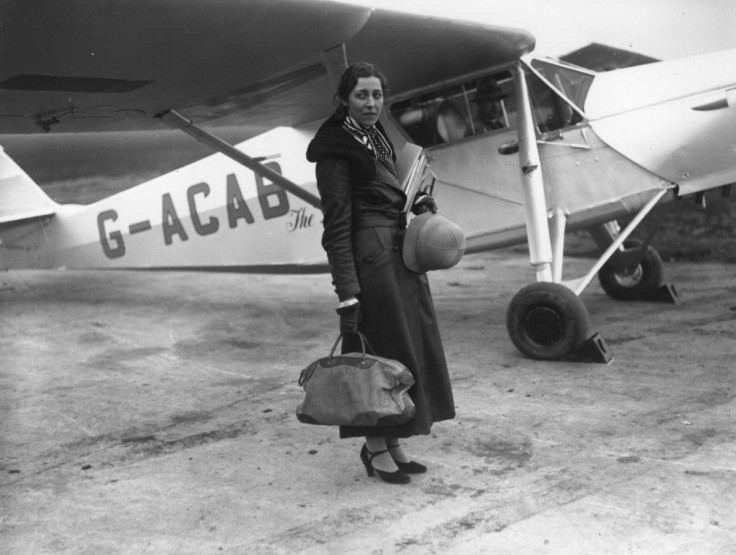Missing pioneering pilot Amy Johnson was chopped up by Royal Navy ship, says historian

A Yorkshire historian believes he knows why the body of pioneer aviator Amy Johnson was never found: It was destroyed by a British ship. In fact, she may have been killed by the ship's propellers.
Johnson, the first woman to fly solo from Britain to Australia, died at the age of 37 in 1941 in the Thames Estuary after she bailed out of her plane. The HMS Haslemere steamed to her aid, after crewmembers spotted her alive in the water, and captain Lieutenant-Commander Walter Fletcher died after diving into the frigid waters to try to save her. The big mystery? Johnson's body went missing.
Dr Alec Gill is convinced Johnson was sucked into the Haslemere's propellers, possibly while she was still alive, and there was little left of her. "The Royal Navy didn't want to admit to a nation in the middle of war that they had killed Amy Johnson. It was just left that she had died in the Thames Estuary, that she had drowned," Gill told the Telegraph. "There are so many different theories and the truth is that we will never know." There was never an inquest into her death because her body was never recoverd.
"What's new is the realisation amongst historians that her body was chopped to pieces by the HMS Haslemere," said Gill. "That wasn't even mentioned during the war and the years afterwards when her parents and family were still alive, the gory details weren't gone into."
Gill discusses the new theory in his book, which was inspired by contact with the son of a former member of the Haslemere crew. Sailor Harry Gould told his son that the ship had hit a sandbar and was forced to rev the engines in reverse, which would have sucked up anything nearby. Someone on the bridge shouted: "Cut the engines," according to Gill, but the ship continued backing up.
"I think within those moments her body was cut to pieces and that's why her body has not been found," he said.
© Copyright IBTimes 2025. All rights reserved.




















